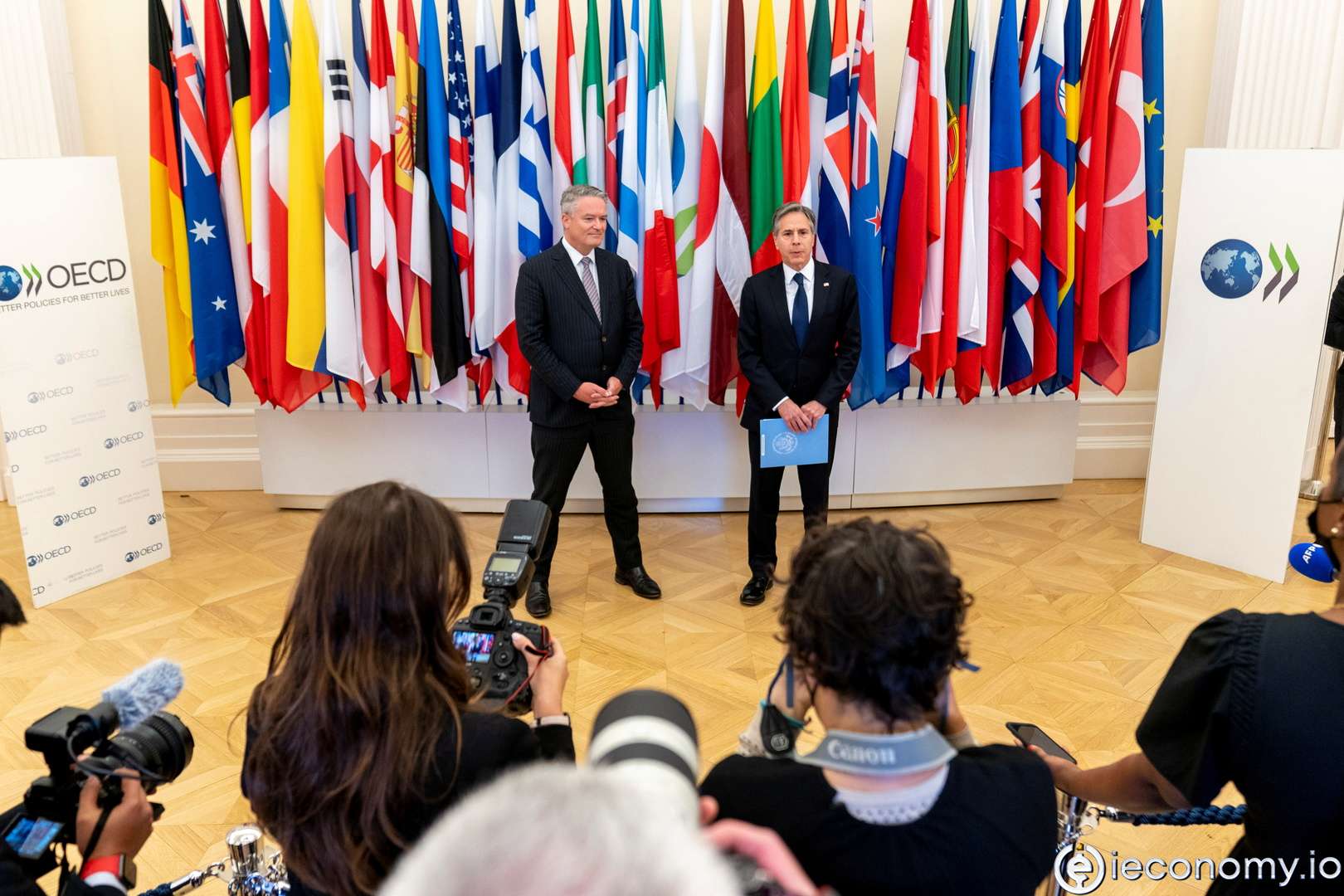3348
0
The OECD have approved a global tax of at least 15 percent
The OECD have approved a global tax of at least 15 percent. Germany called it a colossal step towards tax justice.

Yazar: Tom Roberts
Yayınlanma: 2 Temmuz 2021 10:34
Güncellenme: 2 Mart 2026 22:41
The OECD have approved a global tax of at least 15 percent
The vast majority of countries negotiating a global review of cross-border taxation of multinational companies have supported plans to introduce new rules for the taxation of global companies and have approved a global tax rate of at least 15 percent. This was announced on Thursday after two days of negotiations by the Organization for Economic Co-operation and Development (OECD). Some 130 states and jurisdictions have signed up to a global tax reform that will ensure that multinational companies pay their fair share of the tax where they do business. "A detailed plan for the introduction of the tax, together with other issues, will be completed by October 2021," said an OECD statement signed by 130 of the 139 countries and jurisdictions involved in the negotiations. The Paris-based OECD said in a statement that a global corporate tax of at least 15 percent of corporate income, including US giants Google, Amazon, Facebook and Apple, could generate additional global tax revenue of approximately $ 150 billion annually ( EUR 22 billion). OECD added that the new rules on the taxation of large multinational companies will lead to the transfer of taxation of profits of more than USD 100 billion to the countries where they were generated. The agreement should be approved by the G20 finance ministers next week at a meeting in Venice. A formal agreement within the OECD follows the approval of a proposal for a minimum global tax by the group of richest G7 countries last month at a summit in Britain. US Treasury Secretary Janet Yellen said at the time that the global minimum tax would end the race for the lowest possible tax rate in an effort to attract giant multinational companies. They are looking for low-tax jurisdictions, such as Ireland and the British Virgin Islands, to set up headquarters and pay taxes there, even though their customers, businesses and managers are located elsewhere. Yellen today welcomed the signing of the agreement, saying it was a chance to build a global and domestic tax system that would allow American workers and businesses to compete fairly and win the world economy. "Today's agreement of 130 countries, representing more than 90 percent of global gross domestic product (GDP), is a clear sign - the race for the (tax) bottom is one step closer to its end," said Yellen. Germany has already managed to react to the signing of the agreement, calling it a "colossal step towards tax justice". But low-tax European Union (EU) countries such as Ireland and Hungary have refused to sign the agreement. This has highlighted the persisting differences in approach to global taxation.İLGİLİ HABERLER





European stocks soared and focus shifted to German retail sales after Powell's speech!

Forex Signal For TRY/USD: Inflation Slowdown in November.

Forex Signal For GBP/USD: Bullish Trend Still Not Breaking While Recovery Continues.

Forex Signal For EUR/USD: Starry US Data Points to Higher Fed Increases.

Forex Signal For BTC/USD: Downside Continues as Bitcoin Recovery Moves Less.
En Popüler Haberler
Yorum Yap
Yorumlar
Henüz yorum yapan yok! İlk yorumu siz yapın...